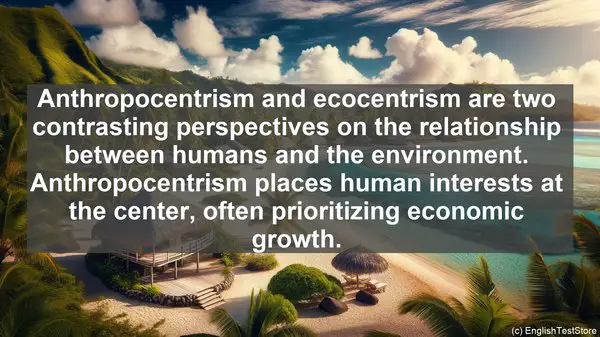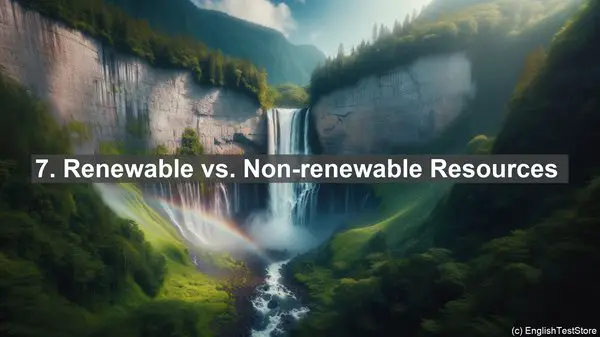Introduction
Today, we are going to dive into the world of political ecology. As with any field, there are certain words that often cause confusion. In this lesson, we will unravel the meanings of the top 10 commonly confused words in political ecology.
1. Sustainability vs. Resilience
Sustainability and resilience are often used interchangeably, but they have distinct meanings. Sustainability refers to the ability of a system to endure over time, while resilience is the capacity to recover from disturbances. While both are important, sustainability focuses on long-term viability, whereas resilience emphasizes adaptability.
2. Conservation vs. Preservation
Conservation and preservation are two approaches to environmental management. Conservation involves the sustainable use of resources, ensuring their availability for future generations. Preservation, on the other hand, aims to protect nature in its pristine state, often through strict regulations. Both approaches have their merits, depending on the context.

3. Mitigation vs. Adaptation
In the face of climate change, mitigation and adaptation are crucial. Mitigation refers to actions that reduce greenhouse gas emissions, addressing the root cause of climate change. Adaptation, on the other hand, involves adjusting to the impacts of climate change, such as building flood defenses. Both are necessary for effective climate action.
4. Biodiversity vs. Species Richness
Biodiversity and species richness are related but distinct concepts. Biodiversity encompasses the variety of life at all levels, including genetic, species, and ecosystem diversity. Species richness, on the other hand, refers specifically to the number of different species in a given area. Biodiversity is a broader term, while species richness is more specific.
5. Environmental Justice vs. Environmental Racism
Environmental justice is the fair treatment and involvement of all people, regardless of their background, in environmental decision-making. It aims to address the unequal distribution of environmental burdens and benefits. Environmental racism, on the other hand, refers specifically to the disproportionate exposure of marginalized communities to environmental hazards. While related, they have distinct focuses.
6. Anthropocentrism vs. Ecocentrism
Anthropocentrism and ecocentrism are two contrasting perspectives on the relationship between humans and the environment. Anthropocentrism places human interests at the center, often prioritizing economic growth. Ecocentrism, on the other hand, values the intrinsic worth of nature, emphasizing its protection for its own sake. These perspectives shape environmental policies and actions.
7. Renewable vs. Non-renewable Resources
Renewable resources are those that can be replenished over time, such as solar or wind energy. Non-renewable resources, on the other hand, are finite and deplete with use, like fossil fuels. The distinction is crucial for sustainable resource management, as reliance on non-renewables can lead to resource depletion and environmental degradation.
8. Globalization vs. Localization
Globalization refers to the increasing interconnectedness of countries and regions, often through trade and cultural exchange. Localization, on the other hand, emphasizes local self-sufficiency and community resilience. Both have implications for sustainability, with globalization enabling resource sharing but also contributing to environmental footprints, while localization can enhance local economies but may limit access to certain goods.
9. Ecosystem Services vs. Ecosystem Functions
Ecosystem services are the benefits that humans derive from ecosystems, such as clean water or pollination. Ecosystem functions, on the other hand, are the processes that occur within an ecosystem, like nutrient cycling. While related, the distinction is important, as understanding ecosystem services can highlight the value of nature in decision-making.

10. Greenwashing vs. Genuine Sustainability
Greenwashing refers to the deceptive practice of presenting a company or product as environmentally friendly when it is not. Genuine sustainability, on the other hand, involves holistic and transparent efforts to minimize environmental impacts. Greenwashing can mislead consumers, while genuine sustainability requires a commitment to long-term change.
